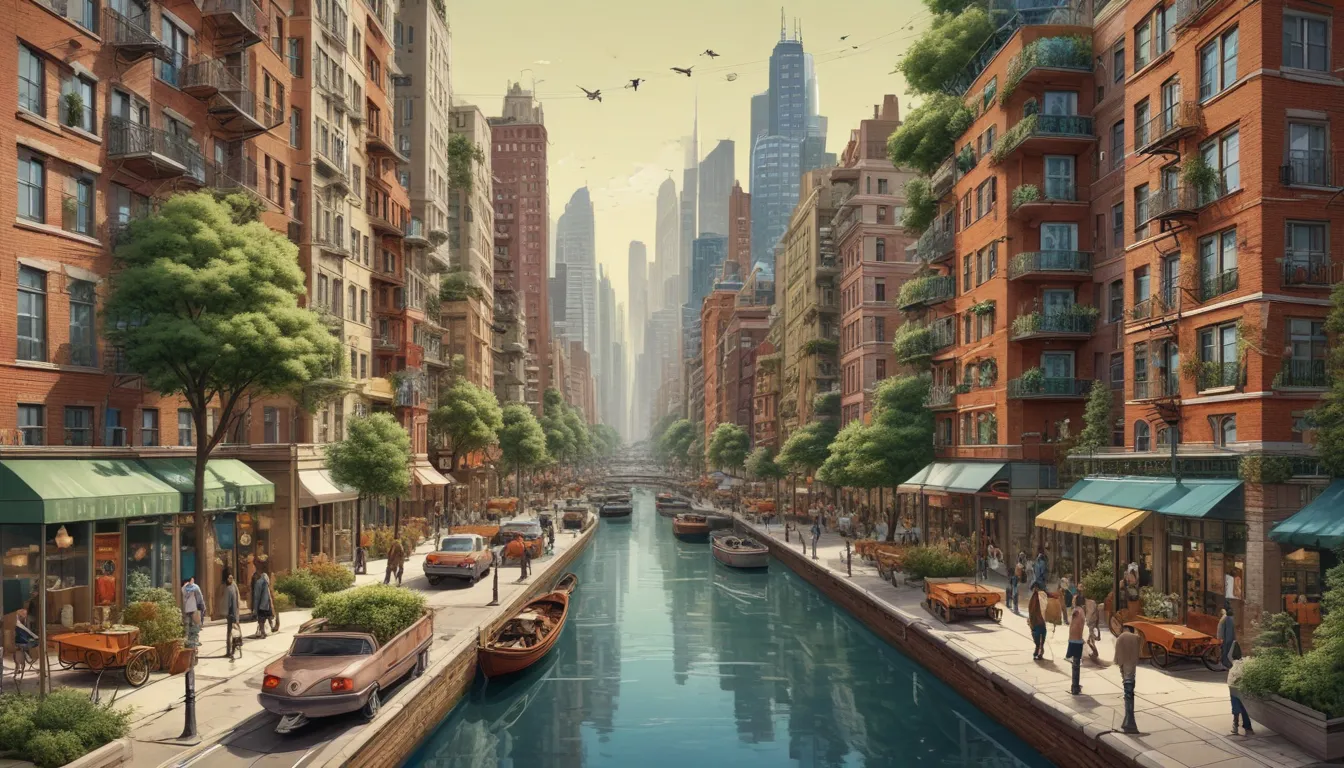A Note About Images: The images used in our articles are for illustration purposes only and may not exactly match the content. They are meant to engage readers, but the text should be relied upon for accurate information.
Urban growth is a dynamic force shaping the landscapes of cities worldwide, presenting a multitude of challenges that require innovative solutions. From transportation strains to housing affordability and environmental sustainability, the complexities of urban development are vast. In this article, we will delve into 18 intriguing facts about urban growth challenges, shedding light on the realities and intricacies of managing sustainable urbanization. Through collaboration, smart technology, and flexible urban planning, we can create inclusive, resilient cities that thrive amidst rapid urban growth.
Understanding Urban Growth Challenges
The Rise of Urban Populations
The global urban population is rapidly increasing, with projections estimating that 68% of the world’s population will reside in urban areas by 2050. This surge poses significant challenges for infrastructure, housing, and services, requiring strategic planning and resources to accommodate the growing urban demographic.
Transportation Strains in Urban Areas
Urban growth contributes to the strain on transportation systems, leading to issues such as traffic congestion, inadequate public transit, and limited parking spaces. Addressing these challenges requires innovative solutions that prioritize sustainable mobility options and efficient urban planning.
Affordable Housing Shortages
Cities grapple with the demand for affordable housing as urban areas become more desirable places to live. The escalating cost of housing often surpasses income growth, leading to housing affordability crises that must be addressed through inclusive housing policies and community-driven initiatives.
Environmental Impact of Urbanization
Expanding cities result in increased pollution, deforestation, and the depletion of green spaces, posing a threat to environmental sustainability. Balancing urban development with eco-friendly practices is essential to mitigate the impacts of urban growth and create environmentally conscious cities.
Social Inequality in Urban Settings
While cities offer economic opportunities, they also amplify social inequalities, with low-income communities facing barriers to education, healthcare, and employment. Addressing social disparities through targeted interventions and equitable policies is crucial to fostering inclusive urban environments.
Addressing Urban Growth Challenges
Water Scarcity Concerns
The growing demand for water in urban areas strains water resources, leading to water scarcity issues in many cities. Sustainable water management practices and conservation efforts are essential to ensure adequate access to clean water for urban populations.
Climate Change Impacts
Urban areas face the challenges of climate change, including rising temperatures, extreme weather events, and sea-level rise. Implementing adaptation strategies and resilient infrastructure is imperative to mitigate the effects of climate change and enhance urban resilience.
Public Health Challenges
Densely populated urban areas are prone to health issues such as air pollution, inadequate sanitation, and limited access to healthcare services. Targeted interventions and public health initiatives are necessary to safeguard the well-being of urban residents and ensure a healthy urban environment.
Sustainable Waste Management
The volume of waste generated in urban areas presents significant challenges for waste management. Implementing effective recycling programs and waste reduction strategies is crucial for promoting sustainable urban growth and environmental conservation.
Preservation of Cultural Heritage
As cities expand, historical sites and cultural heritage face threats from urbanization. Preserving and protecting cultural landmarks through heritage conservation initiatives is vital for maintaining the identity and heritage of cities amidst rapid urban growth.
Embracing Innovation for Sustainable Urbanization
Leveraging Technology for Urban Solutions
Smart city technologies, data analytics, and innovative urban planning strategies can play a pivotal role in addressing urban growth challenges. Embracing technology-driven solutions can enhance efficiency, sustainability, and resilience in urban environments.
Collaborative Approaches to Urban Development
Sustainable urban development necessitates collaboration among governments, communities, businesses, and academia. By working together, diverse stakeholders can develop holistic solutions that tackle the multifaceted challenges of urban growth and foster inclusive, resilient cities.
Promoting Cultural Diversity in Urban Settings
As cities expand, they become hubs of cultural diversity, offering opportunities for cross-cultural exchange and enrichment. Celebrating and preserving cultural diversity through inclusive policies and community engagement is essential for creating vibrant urban spaces that embrace multiculturalism.
Conclusion: Nurturing Sustainable Urban Futures
Urban growth presents a myriad of challenges that require proactive and innovative solutions to ensure sustainable urban development. By embracing smart urban planning, investing in infrastructure, and fostering community participation, we can transform cities into thriving, inclusive, and environmentally friendly spaces that enhance quality of life. It is through collective efforts and a commitment to sustainable practices that we can navigate the complexities of urban growth and shape a brighter future for urban environments.
FAQs: Exploring Urban Growth Insights
Q: What are some major challenges associated with urban growth?
A: Major challenges include strain on infrastructure, resource scarcity, affordable housing shortages, traffic congestion, pollution, and social inequality.
Q: How can cities address urban growth challenges?
A: Cities can address challenges through smart urban planning, infrastructure development, sustainability initiatives, community engagement, and policies promoting social equity.
Q: What are examples of innovative solutions for urban growth challenges?
A: Innovative solutions include smart technology for resource management, renewable energy adoption, green building practices, efficient public transportation systems, and urban revitalization efforts.
Q: Why is sustainable development crucial for managing urban growth?
A: Sustainable development balances present needs with future generations’ requirements, promoting social, economic, and environmental well-being for urban residents.
Q: How can individuals contribute to addressing urban growth challenges?
A: Individuals can contribute by adopting sustainable practices, advocating for responsible urban planning, supporting community initiatives, and engaging in efforts to reduce waste and promote inclusivity in cities.
By embracing innovation, collaboration, and sustainability, we can navigate the challenges of urban growth and create vibrant, resilient cities that enhance the quality of life for all residents. Let’s work together to shape sustainable urban futures and build communities that thrive amidst the complexities of urbanization.






